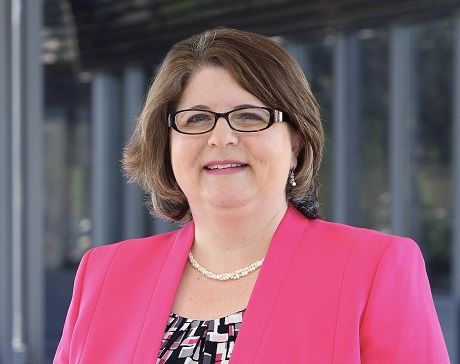
The finalists for WashingtonExec’s Pinnacle Awards were announced Oct. 11, and we’ll be highlighting some of them until the event takes place live, in-person Nov. 30.
Next is Healthcare Industry Executive of the Year (Public Company) finalist Jennifer Welham, who’s senior vice president of public health and social programs at ICF. Here, she talks key achievements, primary focus areas going forward, taking professional risks and more.
What key achievements did you have in 2021/2022?
I’m very proud of the work my 2,000+ person team is doing to address the critical public health and social issues of the day. And we’re continuing to grow ⏤ personally, professionally and as a team ⏤ to bring impactful solutions and even greater value to our clients.
We’re finding innovative ways of combining our deep domain expertise in health and social programs with cutting-edge technology capabilities to help clients modernize outdated public health systems, including improving global health surveillance systems to ensure officials can quickly track and respond to new and emerging health threats.
With the acquisition of ESAC, we’re helping clients fill the gap between health science and technology so they can better track, predict and improve health trends and outcomes ⏤ such as our groundbreaking work with NCI’s Clinical Proteomic Tumor Analysis Consortium program. We’re also providing epidemiology and genetics research and clinical operations services, and biomedical technical and data management support services to our NCI clients.
We’re continuing our longstanding support of NIH’s National Library of Medicine ClinicalTrials.gov to offer a comprehensive online database that makes clinical trial research accessible to patients, providers, researchers, sponsors, and more. And modernizing its IT infrastructure to ensure it can meet the ever-increasing number of clinical trials reported.
We’re helping improve the lives of those living with mental, substance use, and related disorders as the world continues to recover from the aftereffects of the pandemic, providing a broad range of mental health support services to the Substance Abuse and Mental Health Administration.
We’re also providing specific services around key issues including behavioral health for separated families; evaluations for suicide prevention; engagement around substance use prevention; and web development, user experience research, and analytics services for agency-managed websites to ensure critical information is easily accessible by researchers, providers and the public.
What are you most proud of having been a part of in your current organization?
Today’s public health challenges are complex and often interconnected. I’m most proud of the amazing interdisciplinary team I’ve built and continue to build. Together, we’re bringing our collective expertise in public health and social programs’ research, analytics, training, technical assistance and evaluation, along with the latest technology solutions, to help clients and the public make informed and life-changing public health decisions and create breakthrough solutions.
It’s rewarding to know that the work we’re doing is making a real, positive difference in people’s lives every day.
What are your primary focus areas going forward, and why are those so important to the future of the nation?
We have the opportunity to make a meaningful and lasting impact on society as we rebuild from the pandemic, continue to address recovery challenges, and use lessons learned to improve our public health infrastructure.
We’ll work to address the health disparities that face the most vulnerable and populations that have been marginalized by continuing to align our social programs services ⏤ child welfare, childcare, education, workforce development, refugee resettlement, housing, and more ⏤ to support economic recovery.
And we’ll continue to find innovative ways of combining our deep domain and scientific expertise in health and social programs with cutting-edge technology capabilities to rapidly deliver complex, scalable solutions that achieve our clients’ mission outcomes.
What’s the biggest professional risk you’ve ever taken?
Over my 30-year career, I’ve leaped at opportunities to take on more responsibility ⏤ advancing from subject matter expert to project then program manager to line of business then division leader. With each new role, I gained a new “identity” and with that came the need to transition client and people expectations. It felt a little like breaking up.
However, I’ve never been alone. I’ve been supported and mentored along the way by a diverse set of colleagues and senior leaders which has contributed to my success in each new position. I pay this forward with my commitment to maintaining a collaborative culture and a workplace where people can grow and thrive.

